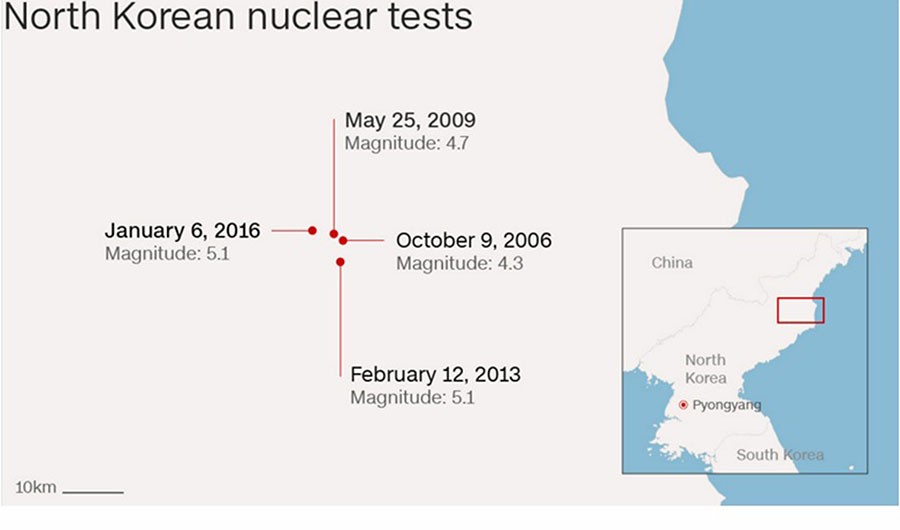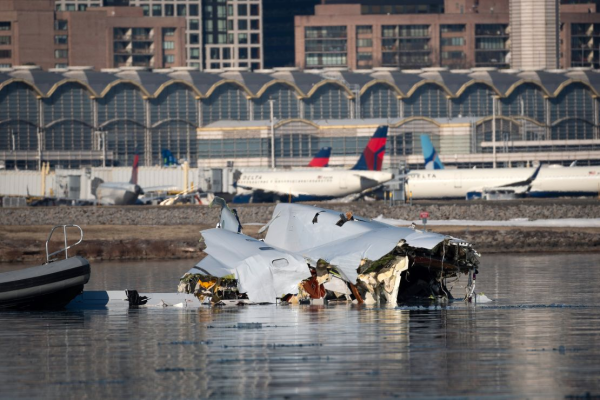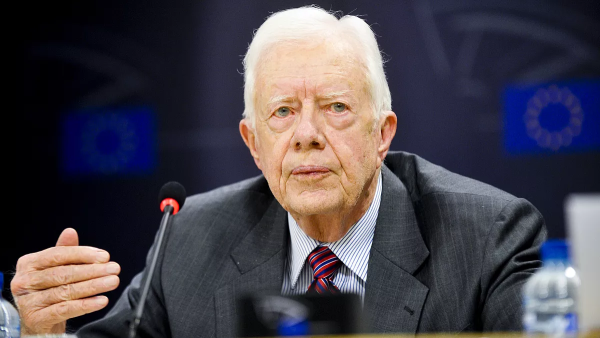North Korea announces nuclear bomb test
On January 8, 2016, North Korea announced that they had conducted a nuclear weapons test. If confirmed, this would be the fourth test conducted for the country since 2006.
On Wednesday, January 6, North Korea announced that they have successfully tested a hydrogen bomb. If the reports are true, this would be the fourth nuclear test conducted since 2006. For a country with limited technology and resources, it would be a huge advance in its military regime.
Up until this point, North Korea only tested and manufactured plutonium bombs which are similar to those dropped on Hiroshima and Nagasaki by the U.S. towards the end of World War II. A hydrogen bomb is more powerful and therefore more dangerous in the hands of a hostile nation.
The difference between the powers of the two bombs comes from the processes it uses to release stored energy. The plutonium bombs use fission, which is the splitting of atoms into smaller atoms to release energy. Hydrogen bombs, on the other hand, use fusion, which is the process of bonding atoms together (such as hydrogen) to create a bigger nuclear explosion.
Despite the danger this bomb possesses, North Korea has stated that the bomb was not built for any specific malicious intentions.
“If there’s no invasion on our sovereignty we will not use nuclear weapon,” the North Korean state news agency said. “This H-bomb test brings us to a higher level of nuclear power.” (CNN)
While there are skeptics as to if this bomb truly exists, there are several indicators that suggest that an event similar to a nuclear explosion of some kind took place.
According to BBC World News, suspicion first arose when the U.S. Geological Survey detected unusual seismic activity underground in the northeast region of the country. Following this, a 5.1 magnitude tremor, which was determined to not be natural, was detected near the Punggye-ri nuclear site in North Korea.
Hours later, North Korean state T.V. announced that, “The republic’s first hydrogen bomb test has successfully performed at 10:00 am on January 6, 2016.” (BBC)
South Korea has yet to confirm the nuclear test as that of a hydrogen bomb, CNN reported that South Korea’s foreign ministry convened an emergency meeting.
The response worldwide has been one of defense. The nuclear test is a serious challenge to global peace and is also a violation of UN Security Council resolutions.
A spokesman for the National Security Council stated that, “”We have consistently made clear that we will not accept it as a nuclear state. We will continue to protect and defend our allies in the region, including the Republic of Korea, and will respond appropriately to any and all North Korean provocations.” (CNN)
China, North Korea’s main ally, said it “firmly opposes” the nuclear test and that carrying it out was “irrespective of the international community’s opposition.” (BBC)
In Japan, the Prime Minister Shinzo Abe, stated that the bomb poses a threat to his country’s security and will not be tolerated. In response to this, the U.S. called on North Korea to “abide by its international commitments and obligations saying it would respond to provocations.” (BBC)
As of right now, no one is sure of what North Korea plans to do with this bomb, or if the reports are even accurate. According to BBC, the United Nation Security Council plans to hold a meeting Wednesday (January 6) to discuss the events and possible outcomes.







